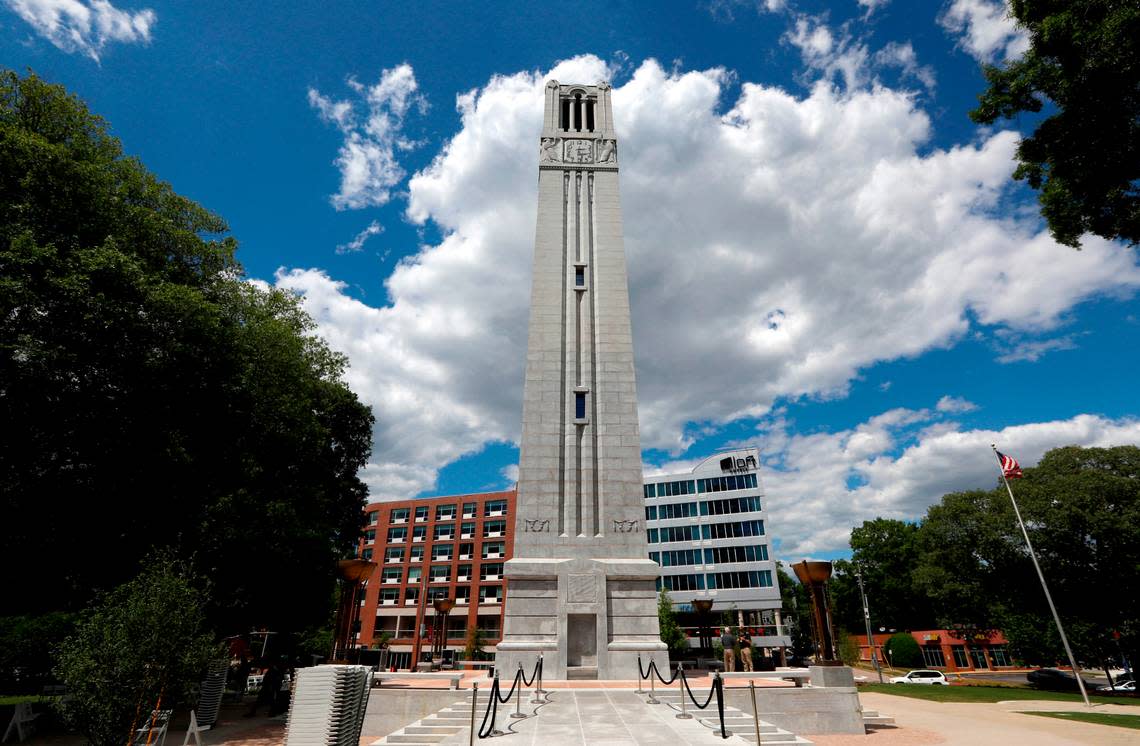Student loan forgiveness in NC won’t equal a state tax break, top lawmaker says
North Carolinians whose student loans are forgiven by the federal government will still have to pay state taxes on the money they would have paid.
The General Assembly could change that, but it won’t, according to Sen. Phil Berger, an Eden Republican who leads the state Senate.
Student debt forgiveness is a policy of President Joe Biden’s administration, and hence, fellow Democrats. After it came out that North Carolina’s current state law means that former students are still on the hook for taxes — not to Uncle Sam, but to the Old North State — Democrats have pushed for a change.
In late August, the state Department of Revenue announced that while the loan forgiveness plan exempts borrowers from paying federal taxes on those forgiven loans, the same does not apply to state taxes. A Revenue spokesperson said the agency would be “monitoring any further enactments by the General Assembly that could change the taxability of student loan forgiveness in North Carolina.”
Gov. Roy Cooper, a Democrat, and state Rep. Brian Farkas, also a Democrat, have proposed a legislative change that appears to be dead in the water.
Berger told reporters Tuesday at the Legislative Building that his chamber won’t take it up.
“The student loan forgiveness, one, is a federal policy that does not have supporting federal law from everything I can see,” he said. “Two, if we’re going to make that change in our tax policy, in our tax laws, for that kind of debt forgiveness, it’d be totally unfair to folks who have had credit card compromises, where those are taxable, and mortgage compromises, where those are taxable. I think it’s something that we, in my opinion, do not need to address in that way.”

PPP comparison
The White House has criticized Republican politicians who stand against the student debt forgiveness plan for taking loan forgiveness on the Paycheck Protection Program. Cooper, too, when asking for a state tax waiver, said this month that legislative leaders “need to find a solution that treats student loan forgiveness the same way they handled the PPP loan forgiveness that many of them received.”
But PPP loans during the coronavirus pandemic were a “completely different situation,” Berger said Tuesday, saying those were taken out “as a result of the federal government and state government shutting down the economy,” and were federal law.
“In this case we’ve got basically an edict from the president,” Berger said before questioning Biden’s authority to grant loan forgiveness in the first place.
According to the N.C. Department of Revenue, the General Assembly would have to adopt a section of the Internal Revenue Code that would include student loan forgiveness as non-taxable income if state leaders wanted to enact a change.
As far as the state’s tax revenue from those loans, Berger said that he has always said when the state gets additional money they could “increase spending to cover any real needs that are out there, we can sock some of it away and we can give some of it back.”
Though the state had a revenue surplus of more than $6 billion in 2022, lawmakers did not include any sort of taxpayer rebate or refund in the budget, as has been proposed in the past. The budget bill this year, which is mostly minor changes since budgets are two-year spending plans, included significant increases to savings funds.
All 170 General Assembly seats are up for election in November. A new legislative session starts in January.
For more North Carolina government and politics news, listen to the Under the Dome politics podcast from The News & Observer and the NC Insider. You can find it at https://campsite.bio/underthedome or wherever you get your podcasts.
